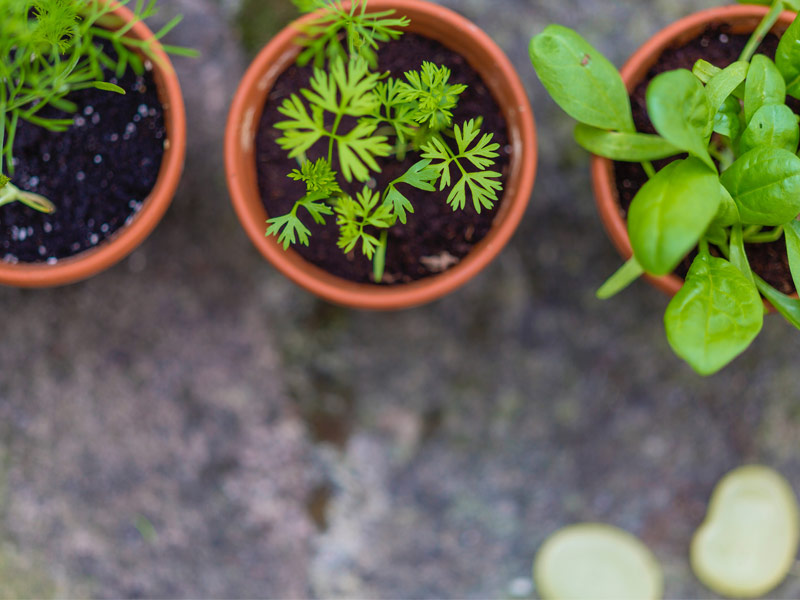In recent years discussions surrounding environmental issues have increased. Sustainability is the forefront of everyone’s mind, with your household and garden being no exception. As people do things like optimize their water use, cut down on plastics, and recycle what they can in their home, there’s certainly no time like now to start that sustainable garden.
1. Compost
Instead of throwing food scraps in the rubbish, why not start composting at home. The less waste going into a landfill the better. Not only will you be providing your garden with nutrition but you are also reducing waste which is good for the environment.
To start, depending on how big your composter is, you will need a shovel or a trowel to turn the compost. A leaf shredder is also handy to break up the leaves and encourage the process. When you’re done you will have to cover your composter with something that keeps water out and allows air to circulate in and out.
2. Plant trees
It’s a well-known fact that through photosynthesis, trees take carbon dioxide out of the atmosphere and turn it into oxygen. It is therefore vital to have trees in your garden!
Another benefit of having trees in your garden is that it will provide you with lots of shade in the summer and prevent the build-up of heat. This is also beneficial because this means that you won’t need to use air conditioners as often, as they use a lot of energy and cost your household money. Older ones also release emissions into the atmosphere.
3. Modern urban living spaces
If you live in an apartment complex where you can’t have your dream garden, there’s still a way to do it on a smaller scale. You can start a small potting garden where you grow things like green beans, peas, and cucumbers. You can also plant dwarf trees. You can also make a hanging garden. These are all easy things you can do when you don’t have enough space.
4. Stop the spread of weeds
Weed pose a big threat to the natural environment. They choke our natural systems like rivers and forests. They also pose a threat to native fauna and flora. These aliens are often unaffected by pests and diseases which would normally control them in their natural habitats.
Do some research and find out which species are in your area are weeds and remove them if you see them popping up in your garden. Don’t put them in your composter as the seeds will just be returned to your garden. Dispose of them in a way that they won’t be able to grow again.
5. Sustainable plants
One very important part of making a sustainable garden is planting sustainable plants. Your local nursery should be able to give you some good suggestions. Do some research about plant species in your area that are not invasive but are resistant to pests and diseases. Sustainable plants are low-maintenance which means they don’t need to be watered and fertilized too often. Once again, the environment wins.
6. Garden power tools
Gardening can be backbreaking work but with the right tools, it can be a breeze. For example, instead of sweeping up the leaves in your garden you can just use a leaf blower which will get the job done much faster and much easier. But when choosing a power tool try finding one that creates little no emissions. Remember the goal is to create a sustainable garden.
So, why cause harm to the environment while creating it. The best leaf blowers are environmentally friendly and often electric. Just shop around a bit to find the one that suits your needs.
7. Other essential tools
Things like compost, which was mentioned earlier, as well as mulch and worms are essential for conditioning your soil and retaining moisture.
By following these tips, you should be able to have your dream garden that is not as dependent on pesticides or fertilizer. It will almost be able to grow completely on its own. Also, you won’t need to water your garden as often which will save water. So, don’t waste any more time and start your sustainable garden now.
To read more on topics like this, check out the lifestyle category.

Leave a Reply